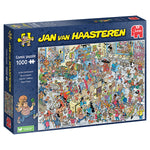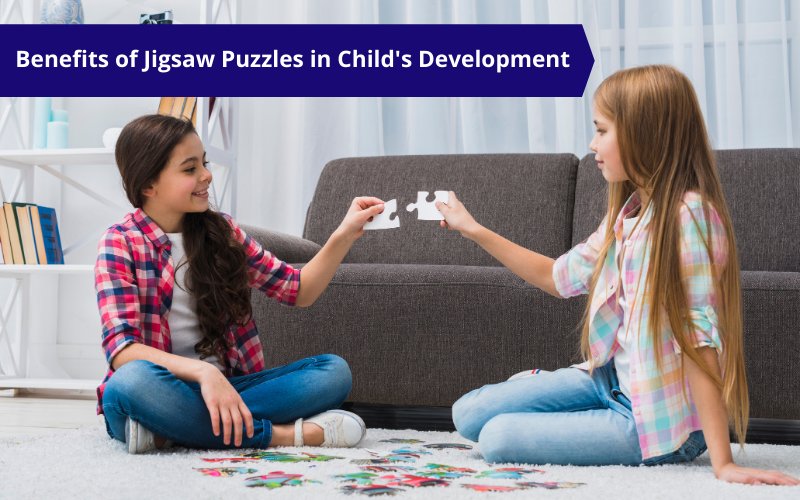You have no items in your shopping cart.
-
Shop By
Shop By
- NEW ARRIVALS NEW ARRIVALS
- BRAND BRAND
- NO. OF PIECES
NO. OF PIECES
- 1-299 (kids & beginners) 1-299 (kids & beginners)
- 300-499 300-499
- 500-699 500-699
- 700-999 700-999
- 1000-1499 1000-1499
- 1500-3999 1500-3999
- 4000+ 4000+
- 3d puzzles 3d puzzles
- E-z grip large pieces E-z grip large pieces
- Puzzles-to-remember (adults) Puzzles-to-remember (adults)
- Shaped puzzles Shaped puzzles
- Muli-pack puzzles Muli-pack puzzles
- ARTISTS
ARTISTS
- Abraham hunter Abraham hunter
- Adrian chesterman Adrian chesterman
- Aimee stewart Aimee stewart
- Al agnew Al agnew
- Alan giana Alan giana
- Albert williams Albert williams
- Alex bennett Alex bennett
- Alexander chen Alexander chen
- Alexander von humboldt Alexander von humboldt
- Alison lee Alison lee
- Andres orpinas Andres orpinas
- Andy thomas Andy thomas
- Angela trotta thomas Angela trotta thomas
- Anne stokes Anne stokes
- Armand foster Armand foster
- Art poulin Art poulin
- Ashley davis Ashley davis
- Assaf frank Assaf frank
- Barbara behr Barbara behr
- Bill bell Bill bell
- Birgit tanck Birgit tanck
- Bob byerley Bob byerley
- Bob fair Bob fair
- Bob pettes Bob pettes
- Bonnie white Bonnie white
- Carl brenders Carl brenders
- Carol dyer Carol dyer
- Carole gordon Carole gordon
- Charles burton barber Charles burton barber
- Charles wysocki Charles wysocki
- Charles wysocki Charles wysocki
- Charlie girard Charlie girard
- Christian riese lassen Christian riese lassen
- Christine genest Christine genest
- Christoper schöne Christoper schöne
- Christoph schöne Christoph schöne
- Chuck pinson Chuck pinson
- Ciro marchetti Ciro marchetti
- Claude monet Claude monet
- Cris ortega Cris ortega
- Cynthie fisher Cynthie fisher
- Czes pachela Czes pachela
- D. l. "rusty" rust D. l. "rusty" rust
- Dan hatala Dan hatala
- Dan morris Dan morris
- Dave barnhouse Dave barnhouse
- Dave whamond Dave whamond
- David galchutt David galchutt
- David maclean David maclean
- David penfound David penfound
- Dean pennala Dean pennala
- Dean russo Dean russo
- Debbie cook Debbie cook
- Denis mayer jr. Denis mayer jr.
- Dennis lewan Dennis lewan
- Derek roberts Derek roberts
- Dominic davison Dominic davison
- Dona gelsinger Dona gelsinger
- Donna race Donna race
- Douglas laird Douglas laird
- Eboy Eboy
- Eduard Eduard
- Edgar degas Edgar degas
- Edvard munch Edvard munch
- Edward wargo Edward wargo
- Elspeth maclean Elspeth maclean
- Eric dowdle Eric dowdle
- Eugene lushpin Eugene lushpin
- Fiona osbaldstone Fiona osbaldstone
- Francois ruyer Francois ruyer
- Fred swan Fred swan
- Gail flores Gail flores
- Garry walton Garry walton
- Gary patterson Gary patterson
- Geno peoples Geno peoples
- Geoffrey tristram Geoffrey tristram
- George chambers sr. George chambers sr.
- Gerald newton Gerald newton
- Giovanni paolo panini Giovanni paolo panini
- Greg cuddiford Greg cuddiford
- Greg giordano Greg giordano
- Guido borelli Guido borelli
- Guillermo mordillo Guillermo mordillo
- Gustav klimt Gustav klimt
- göbel/knorr göbel/knorr
- H. hargrove H. hargrove
- Hieronymus bosch Hieronymus bosch
- Hiroaki shioya Hiroaki shioya
- Howard robinson Howard robinson
- Hugo prades Hugo prades
- Ingrid slyder Ingrid slyder
- Interlitho Interlitho
- James a. meger James a. meger
- James lee James lee
- James mellett James mellett
- James mitchell James mitchell
- Jan frans van dael Jan frans van dael
- Jan patrik krasny Jan patrik krasny
- Jane maday Jane maday
- Jan van haasteren Jan van haasteren
- Janet kruskamp Janet kruskamp
- Jason taylor Jason taylor
- Jean-louis david Jean-louis david
- Jenny newland Jenny newland
- Jenny newland Jenny newland
- Jim hansel Jim hansel
- Jim killen Jim killen
- Jim mitchell Jim mitchell
- Jim wallace Jim wallace
- Jo-ann richards Jo-ann richards
- Joelle mcintyre Joelle mcintyre
- Johan potma Johan potma
- Johannes vermeer Johannes vermeer
- John francis John francis
- John trumbull John trumbull
- Jon burgerman Jon burgerman
- Joseph burgess Joseph burgess
- Josephine wall Josephine wall
- Kate ward thacker Kate ward thacker
- Kathryn stover Kathryn stover
- Ken zylla Ken zylla
- Kevin daniel Kevin daniel
- Kevin walsh Kevin walsh
- Kim penner Kim penner
- Kim veilleux Kim veilleux
- Lars stewart Lars stewart
- Laura l. seeley Laura l. seeley
- Lori schory Lori schory
- Lawren s. harris Lawren s. harris
- Lena pigareva Lena pigareva
- Leonardo da vinci Leonardo da vinci
- Lewis t. johnson Lewis t. johnson
- Liliya kulianionak Liliya kulianionak
- Linda berman Linda berman
- Linda jane smith Linda jane smith
- Linda picken Linda picken
- Lisa parker Lisa parker
- Lise labbé Lise labbé
- Liz goodrick-dillon Liz goodrick-dillon
- Lois b. sutton Lois b. sutton
- Marcello corti Marcello corti
- Maria rabinsky Maria rabinsky
- Marino degano Marino degano
- Mark frost Mark frost
- Mark gray Mark gray
- Mark keathley Mark keathley
- Mary thompson Mary thompson
- Mat edwards Mat edwards
- Mateo dineen Mateo dineen
- Matthew stewart Matthew stewart
- Melanie delon Melanie delon
- Michael fishel Michael fishel
- Michael herring Michael herring
- Michael ryba Michael ryba
- Michael searle Michael searle
- Michelangelo buonarroti Michelangelo buonarroti
- Miguel freitas Miguel freitas
- Mike bennett Mike bennett
- Mike wimmer Mike wimmer
- Nicky boehme Nicky boehme
- Nicole laporte Nicole laporte
- Norman rockwell Norman rockwell
- Pamela renfroe Pamela renfroe
- Paul gauguin Paul gauguin
- Pauline paquin Pauline paquin
- Persis clayton weirs Persis clayton weirs
- Phil dobson Phil dobson
- Phillip d. hawkins Phillip d. hawkins
- Pierre-auguste renoir Pierre-auguste renoir
- Pieter bruegel Pieter bruegel
- Rachel perry Rachel perry
- Rajko zigic Rajko zigic
- Randy wollenmann Randy wollenmann
- Renato casaro Renato casaro
- Richard cowdrey Richard cowdrey
- Richard macneil Richard macneil
- Rita berman Rita berman
- Robert bateman Robert bateman
- Robert kramer Robert kramer
- Robert opie Robert opie
- Roger blachon Roger blachon
- Roger neil turner Roger neil turner
- Rosemary millette Rosemary millette
- Rosina wachtmeister Rosina wachtmeister
- Royce mcclure Royce mcclure
- Salvador dali Salvador dali
- Sam park Sam park
- Sam timm Sam timm
- Sandra boynton Sandra boynton
- Sandra garvey Sandra garvey
- Sandro botticelli Sandro botticelli
- Sergio botero Sergio botero
- Shelley davies Shelley davies
- Silvia christoph Silvia christoph
- simon kayne simon kayne
- Stephen warnes Stephen warnes
- Steve cameron Steve cameron
- Steve crisp Steve crisp
- Steve gettle Steve gettle
- Steve hanks Steve hanks
- Steve klein Steve klein
- Steve read Steve read
- Sung kim Sung kim
- Susan bourdet Susan bourdet
- Susan brabeau Susan brabeau
- Suzy mead Suzy mead
- Terence cuneo Terence cuneo
- Terry doughty Terry doughty
- Terry harrison Terry harrison
- Terry redlin Terry redlin
- Thelma winter Thelma winter
- SEASONAL FAVOURITES SEASONAL FAVOURITES
- THEMED PUZZLES
THEMED PUZZLES
- Animals & wildlife Animals & wildlife
- Around the world Around the world
- Black & white Black & white
- Canada puzzles Canada puzzles
- Cartoon & comical Cartoon & comical
- Christmas Christmas
- Collage puzzles Collage puzzles
- Disney puzzles Disney puzzles
- Famous people, great inventors & more Famous people, great inventors & more
- Fantasy & majestic Fantasy & majestic
- Fashion & beauty Fashion & beauty
- Holidays & celebrations Holidays & celebrations
- Home & garden Home & garden
- Landscape & scenic Landscape & scenic
- Maps of the world & geography Maps of the world & geography
- Music, arts, instruments & dance Music, arts, instruments & dance
- Planes, trains, automobiles, boats ships & more Planes, trains, automobiles, boats ships & more
- Popular paintings, fine art, impressionists Popular paintings, fine art, impressionists
- Portraits & photography Portraits & photography
- Religious, spiritual & inspirational Religious, spiritual & inspirational
- Science fiction, space, aliens, astrology Science fiction, space, aliens, astrology
- Sweets, treats & foods Sweets, treats & foods
- Sports & events Sports & events
- Vacation spots & great getaways Vacation spots & great getaways
- KIDS & BEGINNERS KIDS & BEGINNERS
- PUZZLES FOR GOOD PUZZLES FOR GOOD
- STORAGE, GLUE & ACCESSORIES STORAGE, GLUE & ACCESSORIES
- GAMES, TRIVIA & MORE GAMES, TRIVIA & MORE
- LEVEL OF DIFFICULTY LEVEL OF DIFFICULTY
- WOODEN JIGSAW PUZZLE WOODEN JIGSAW PUZZLE
- PUZZLES FOR ADULTS PUZZLES FOR ADULTS
-
POPULAR BRANDS
POPULAR BRANDS
- 4D BUILD 4D BUILD
- A BROADER VIEW A BROADER VIEW
- ALIPSON ALIPSON
- ANATOLIAN PERRE GROUP ANATOLIAN PERRE GROUP
- AQUARIUS (NMR) AQUARIUS (NMR)
- ART PUZZLE ART PUZZLE
- ART & FABLE PUZZLE COMPANY ART & FABLE PUZZLE COMPANY
- BEPUZZLED BEPUZZLED
- BLUEBIRD BLUEBIRD
- BOARDWALK BOARDWALK
- BRASS MONKEY BRASS MONKEY
- BRIXIES BRIXIES
- B TOYS B TOYS
- BUFFALO BUFFALO
- CALYPTO CALYPTO
- CAP CANADIAN ART PRINTS CAP CANADIAN ART PRINTS
- CASTORLAND CASTORLAND
- CAVALLINI CAVALLINI
- CEACO PUZZLES CEACO PUZZLES
- CHERRYPAZZI CHERRYPAZZI
- CHRONICLE BOOKS CHRONICLE BOOKS
- CLEMENTONI CLEMENTONI
- COBBLE HILL COBBLE HILL
- CROCODILE CREEK CROCODILE CREEK
- CURIOSI CURIOSI
- CUTEBEE CUTEBEE
- DANAWARES DANAWARES
- DELFY DELFY
- DIAMOND DOTZ DIAMOND DOTZ
- DOWDLE DOWDLE
- D-TOYS D-TOYS
- EDUCA EDUCA
- EEBOO EEBOO
- ELEWHITE ELEWHITE
- ELLEMBEE ELLEMBEE
- ENJOY ENJOY
- EUROGRAPHICS EUROGRAPHICS
- FALCON FALCON
- FOXMIND FOXMIND
- FUNKO GAMES FUNKO GAMES
- GALISON GALISON
- GIBBS SMITH GIBBS SMITH
- GIBSONS PREMIUM GIBSONS PREMIUM
- GLADIUS GLADIUS
- GOLIATH GOLIATH
- GOOD PUZZLE CO. GOOD PUZZLE CO.
- GRAFIKA GRAFIKA
- HAPE HAPE
- HAPPILY HAPPILY
- HART HART
- HEYE HEYE
- HOLIYAY HOLIYAY
- JACAROU JACAROU
- JUMBO JUMBO
- JIG & PUZZ JIG & PUZZ
- KI PUZZLES KI PUZZLES
- KIKI KIKI
- KSM TOYS KSM TOYS
- LALITA'S LALITA'S
- LAURENCE KING LAURENCE KING
- LEGO® LEGO®
- LOZ BRICKS LOZ BRICKS
- MAGNOLIA MAGNOLIA
- MASTERPIECES MASTERPIECES
- MATTEL MATTEL
- MCHEZO MCHEZO
- MELISSA & DOUG MELISSA & DOUG
- METAL EARTH METAL EARTH
- MICROPUZZLES MICROPUZZLES
- MIEREDU MIEREDU
- MIND MATTERS MIND MATTERS
- MUDPUPPY MUDPUPPY
- NATHAN NATHAN
- NEW YORK PUZZLE COMPANY NEW YORK PUZZLE COMPANY
- NOVA NOVA
- ORANGE TREE TOYS ORANGE TREE TOYS
- PAPERBLANKS PAPERBLANKS
- PETER PAUPER PRESS PETER PAUPER PRESS
- PIATNIK PIATNIK
- PIECERELAX PIECERELAX
- PIERRE BELVEDERE PIERRE BELVEDERE
- PINTOO PINTOO
- PLAYFUL PASTIMES PLAYFUL PASTIMES
- PLUS-PLUS PLUS-PLUS
- POMEGRANATE POMEGRANATE
- PRESSMAN PRESSMAN
- PRIME 3D PRIME 3D
- PRINCETON ARCHITECTURAL PRESS PRINCETON ARCHITECTURAL PRESS
- PROFESSOR PUZZLE PROFESSOR PUZZLE
- PUZZLETWIST PUZZLETWIST
- RAVENSBURGER RAVENSBURGER
- RE-MARKS RE-MARKS
- RIDLEY'S RIDLEY'S
- ROBOTIME ROBOTIME
- ROOVI ROOVI
- ROSEART ROSEART
- RULE 1 CONCEPTS RULE 1 CONCEPTS
- SCHMIDT SPIELE SCHMIDT SPIELE
- SIMON & SCHUSTER SIMON & SCHUSTER
- SPRINGBOK SPRINGBOK
- SUNSOUT SUNSOUT
- STANDOUT STANDOUT
- SPINMASTER SPINMASTER
- THE OP USAOPOLY THE OP USAOPOLY
- TINTIN TINTIN
- TOMAX TOMAX
- TONECHEER TONECHEER
- TREFL TREFL
- TUTTLE TUTTLE
- TWEEN TEAM TWEEN TEAM
- UNE A LA FOIS UNE A LA FOIS
- UNIVERSITY GAMES UNIVERSITY GAMES
- VERMONT CHRISTMAS COMPANY VERMONT CHRISTMAS COMPANY
- VERY GOOD PUZZLE VERY GOOD PUZZLE
- VILLAGER VILLAGER
- WASGIJ WASGIJ
- WHITE MOUNTAIN WHITE MOUNTAIN
- WILD STAR HEARTS WILD STAR HEARTS
- WILLOW CREEK WILLOW CREEK
- WONDER FORGE WONDER FORGE
- WORKMAN WORKMAN
- WREBBIT 3D WREBBIT 3D
- YAZZ YAZZ
- Accessories Accessories
- Deals Deals
- Puzzles for Good Puzzles for Good
- Gift Cards Gift CardsHot Hot
- Blogs Blogs
- Contact Us Contact Us
0
You have no items in your shopping cart.

















































